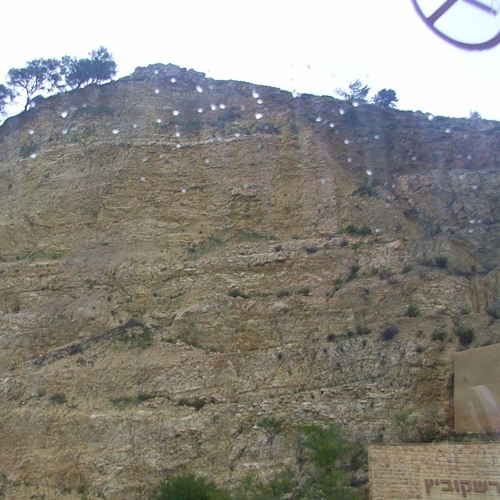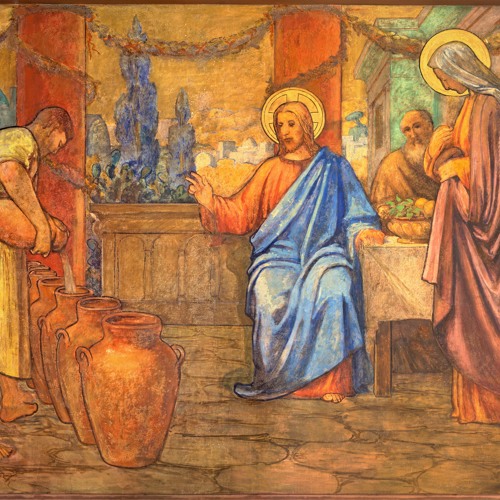
(The hilltop of Nazareth. Photograph by Fr Paul W. Kelly).
First Reading: Nehemiah 8:2-6. 8-10
Psalm: Ps 18:8-10. 15. “Your Words Lord are Spirit and life”
Second Reading: 1 Corinthians 12:12-30
Gospel Acclamation: cf Luke 4:18
Gospel: Luke 1:1-4; 4:14-21
++++
Please listen to my audio recordings of the readings, prayers and reflections for the Third Sunday in Ordinary Time. Year C - 1/8/2019 by clicking this link https://soundcloud.com/user-633212303/faith-hope-and-love-3c-episode-137 (EPISODE: 137)
+++++
In the wonderful First reading, we see an ancient example of the people of God gathering to listen to God’s word and give praise and worship to the Lord. This pattern all these many centuries later is still familiar. God’s people, including us today, gather to listen to God’s word and appreciate the meaning of it for our lives here and now, and it touches our hearts and minds and deepens our dedication to the Lord. Sometimes God’s word challenges us and cuts us to the heart, as it reveals our areas for growth, and at other times, it encourages and nurtures us. But it never fails to be a source of grace and life for all who receive the Word.
May we always open our hearts and minds to God’s word... Cherishing it; .... being moved by it.... treasuring it and living it...
And what a beautiful second reading! Saint Paul once again gives us a superb image - Just as the body has many parts but it is still one body.... so, we, God’s people, are invited to remember the unity we have with one another... the shared sense of purpose and the lived reality that our good is tied to the good of all people.
This image by Saint Paul reminds me of a modern day parable I heard a few years back.... its called the “Parable of the pumpkins in the pumpkin patch.....”
Once upon a time, all the pumpkins in the pumpkin patch were having an argument. They were arguing about which of them was the most important pumpkin of them all...... / Which of them should get a better share of things because they were the greatest pumpkin.// One of the pumpkins put himself forward because he was the largest pumpkin of the lot -- Another made the same claim because she was the smartest pumpkin of the whole group…….// Another said they were the best pumpkin because of the artistic markings on their pumpkin skin....,. and so on...... The pumpkins argued for a long time..... They fought and fought until the farmer came along._ The farmer heard their arguing and smiled and she said to them "Put your hands on your heads".. And so -all the pumpkins put their hands on their heads (by the way, I didn't know pumpkins had hands but there you go) When the pumpkins put their hands on their heads._ they all fell silent… And they all looked very embarrassed…. For, as they placed their hands on their heads... they touched a vine that was connected to their heads….. It was the same vine that connected each pumpkin to every other pumpkin...... No longer could they argue over who was the most important... And who should be set apart? They realised... They all belonged together....and each one of them was important... For they all came from the one vine.... They were one! ...
We are like that... we each have gifts... but these gifts are “given to share” with each other, ... so we really need to help and support each-other... especially those most in need.... This image is nowhere near as eloquent as Paul’s image as the one body, but it speaks of the same idea.
Saint Luke wrote his version of the gospel (which we hear today and through most of this year), and he says he did this to provide an orderly account of things relating to Jesus. (As well as this Gospel, Luke also wrote the “Acts of the Apostles”... clearly addressing them, at the start of both works, to the same person named “your Excellency Theophilus” - who was obviously a Gentile believer; with a high rank and status in society... This gospel particularly speaks to influential and powerful Gentiles, who are trying to work out what Jesus’ asks of them and what God’s core values are. And it is equally inviting and challenging.
And at the very start of Our Lord’s ministry, God’s ancient words are announced as being fulfilled “right here and right now, as you listen..” - In this extraordinary speech at the synagogue of his own home town Jesus, spells out the “blueprint for his ministry” – (an incredibly generous and compassionate ministry at that), ….,
It is a stunning declaration of the dawning of a new era of God’s favour, kindness, and grace….. Where all the hopes and dreams of the poor and the needy have been noticed by God and committed to God’s care. God really cares a lot, about how badly people are faring and God means to do something about it through Jesus and his followers. God wants people to see their destiny as bound-up with the worries of others too. And use their gifts and influence to make a difference, not just for ourselves or our families and friends, but for the good of all people - whom we united to, through God.
Jesus’ home town of Nazareth, was a very, very important location….. It was a city of some 20,000 people. The hill (on which the city was built - and which Jesus’ listeners are soon about to unsuccessfully try to throw Jesus off!!), was not just some minor feature…. If the boy Jesus, when he was growing up in that city, had gone up that massive hill and peered over it…. The world, as it was then known, would have sprawled in front of him…… Before his eyes were the major trade and travelling routes from all the different regions to the known world…… Jesus would have watched the “world” go by as he sat there on that hill in Nazareth. And nearby (an hours walk from Nazareth), was a town called Sepphoris, which was the location of Herod’s palace at the time….. A town of beauty, prestige, privilege and wealth…. A town Joseph and Jesus may very well have worked in, with tradesmen’s work in this major time of building…
And so, Jesus’ speech at Nazareth is timely and perfectly-placed. At the crossroads of the nations, God has intervened in our history… and has come to give us news… and thank goodness.. it is very good news indeed ……for the poor.
“The poor” are all of us… Many of us are captive to one thing or another in our lives…… we all desperately need the news Jesus has to give us… so this news from Jesus is for all of us. And for everyone… // And we take heart that Jesus has us in mind when he begins his mission to save and help people in need… and free us from whatever imprisons and impoverishes us all…
The first step seems to be ‘freedom’ – To be Free from anything that stops us being the loving people God calls us to be…. / Free to respond compassionately and justly to those in need….. // Free from wasting our time and energy on that which does not last.
Jesus words are not merely ‘talk’ - He sets about immediately doing what he has just announced to the people. Involving himself fully in the lives of those who are suffering and who feel lost.
Let us, as one body in Christ, recognise that we are all in this together.... It is not "them or us" or "every person for themselves"…. It is "us, gathered and united by Christ," to be open to/. cooperate with/ and trust in our Lord, who is good news in everything he says and does//.. in fact, he is the very best news we will ever hear….
+++++++++++++++++++++++++++
REFERENCES:
FR. PAUL W. KELLY
THE DAILY STUDY BIBLE. GOSPEL OF LUKE. (REVISED EDITION). BY
WILLIAM BARCLAY.
SUNDAYS AND HOLY DAY LITURGIES. YEAR C. FLOR MCCARTHY S.D.B.
Abbot's homily. Monastery of Christ in the desert.
+++
Archive of homilies and reflections: http://homilycatholic.blogspot.com.au
To contact Fr. Paul, please email: paulwkelly68@gmail.com
To listen to my weekly homily audio podcast, please click this link here.
NB - It is often a week or so Ahead: https://soundcloud.com/user-633212303/tracks
You are welcome to subscribe to Fr Paul’s homily mail-out by sending an email to this address: paulkellyreflections+subscribe@googlegroups.com
Further information relating to the audio productions linked to this Blog:
“Faith, Hope and Love, A time of Christian worship and reflection” - Led by Rev Paul W. Kelly
Texts used in this programme are for the purposes of worship and prayer for listeners wherever you are.
Prayers and chants are taken from the English Translation of the Roman Missal, edition three, © 2010, The International commission on English in the liturgy.
Scriptures are from the New Revised Standard Version: © 1989, by the national council of Churches of Christ, USA. , //adaptations to conform with Catholic liturgical norms, © 2009, by the same.
[{selected psalms } - ***Psalm verses are (also) taken from “The Psalms: A New Translation” ©1963, The Grail (England), published by Collins.. **]
Prayers of the Faithful are adapted from Robert Borg’s 1993 book “ Together we pray”. Published in Sydney Australia By E.J. Dwyer. (out of print).
{ “Mass In Honour of St. Ralph Sherwin” -published 2011, Composed and Sung by Jeffrey M. Ostrowski
Featuring the….Gloria, The Creed, The Kyrie, The Mass parts, Psalms: http://www.ccwatershed.org/chabanel/ ]]] ] COPYRIGHT @ 2018 CORPUS CHRISTI WATERSHED. ALL RIGHTS RESERVED. www.ccwatershed.org/vatican/Ralph_Sherwin_Videos/
“Faith, Hope and Love” theme Hymn: Words, based on 1 Corinthians 13:1-13, set to original music © 1996 by Paul W. Kelly.
For more details please visit http://homilycatholic.blogspot.com.au/
Contact us at paulwkelly68@gmail.com
Production by Kelly Enterprises Resources.
May God bless and keep you.
Third Sunday in Ordinary Time. Year C
(Sunday, 27 January 2019)
(EPISODE: 137 )
The Lord be with you.
+++++++++++++
Brothers and sisters, let us acknowledge our sins and so prepare ourselves to celebrate the sacred mysteries.
Lord Jesus, you call your people to turn away from sin: Lord, have mercy//You teach us wisdom, and write your truth in our inmost heart: Christ, have mercy//You forgive sins through the ministry of reconciliation: Lord, have mercy//
May almighty God have mercy on us, forgive us our sins, and bring us to everlasting life. Amen.
+++++++++++++++++++++
Memorial Acclamation
Save us, Saviour of the world, for by your Cross and Resurrection you have set us free.
++++++++++++++++++++++++++
Sundays Ordinary III
Eucharistic Prayer II
Communion side. pwk: LH
++++
Go in peace, glorifying the Lord by your life.
To unsubscribe click here.
-- You received this message because you are subscribed to the Google Groups "Catholic Reflections (Fr Paul Kelly archives)" group.
To unsubscribe from this group and stop receiving emails from it, send an email to paulkellyreflections+unsubscribe@googlegroups.com.
For more options, visit https://groups.google.com/d/optout.



